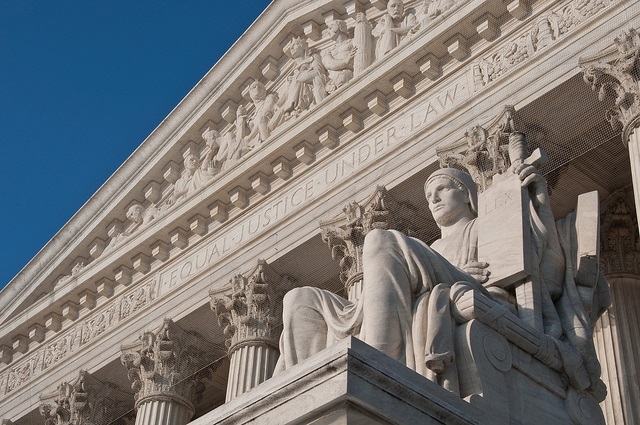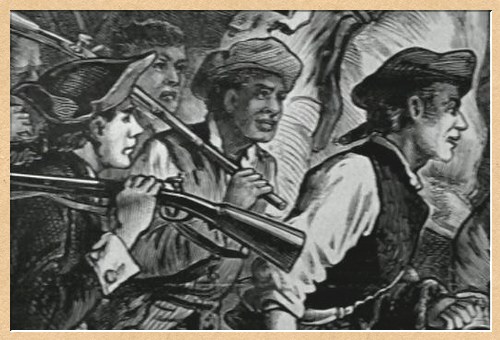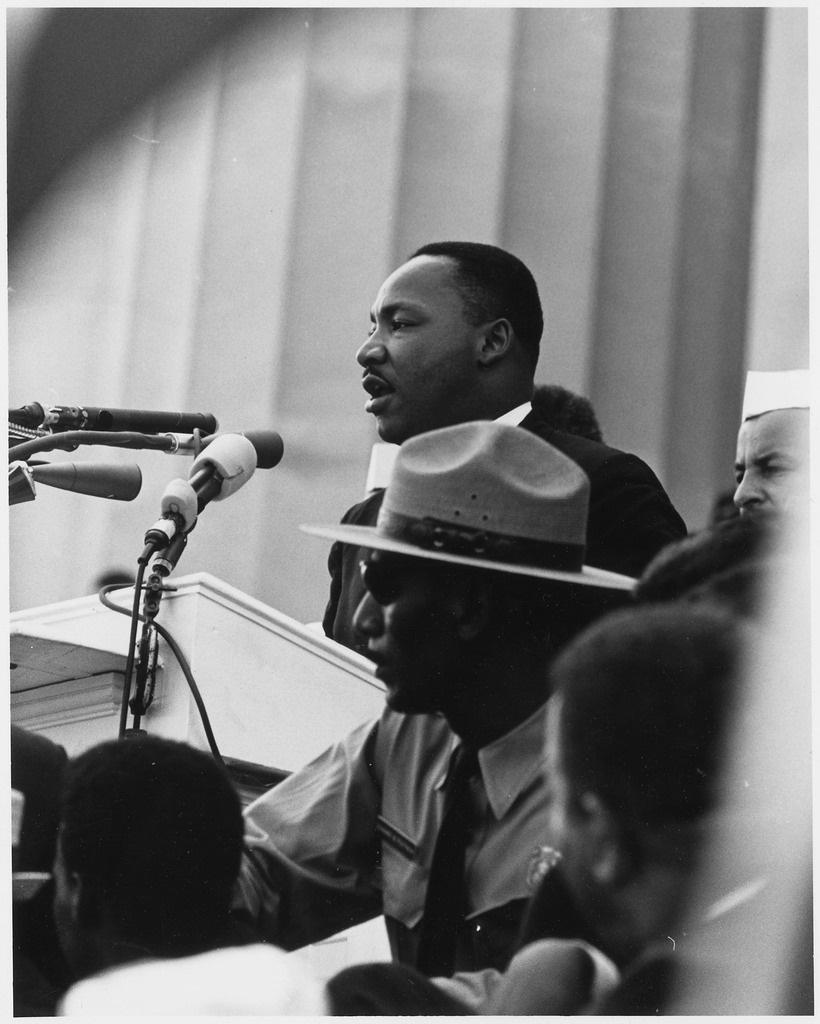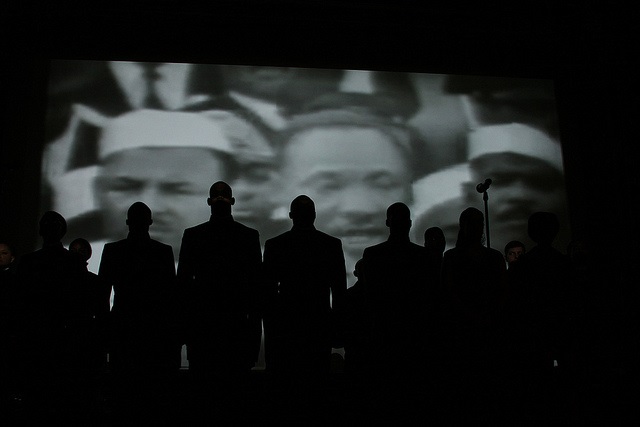It’s Black History Month. And I’m a white woman community organizer working in mostly white communities for a white organization that recognizes we live in an unjust, racist, misogynist, eco-suicidal western world.
I have a lot to learn about my white privilege. So do the people around me.
It’s tricky, being white and wanting to say something about race and Black History Month. No matter what I say – is my privilege revealing itself? (Of course it is.) Am I going to say the wrong thing? (Probably.) Will I offend people? (Not intentionally.) These are hard conversations to cover in a blog, email, Facebook, or in person. We have to have them anyway, if we hope to make real change.
And so, I humbly share some of my story and speak out about not what keeps us apart, but instead what may help inspire us to come together.
Bursting Bubbles
My community became the target of the oil and gas industry a decade ago. As a middle class white person in a privileged suburban neighborhood, I wasn’t accustomed to being a target. Neither were my neighbors. We actually believed that we mattered, and – living in a democracy – we just needed to assert our democratic rights. We just needed to voice our concerns, and that would stop these corporate pillagers from exploiting and harming our neighborhoods.
We actually believed that we mattered, and – living in a democracy – we just needed to assert our democratic rights.
Our democratic bubble was quickly burst. We learned that our rights and voices meant nothing when the competing “rights and voices” were corporate. Our elected officials only heard the voices of the moneyed interests who would fund their future reelections and advance their political careers.
I can imagine people of color and those living in poorer communities laughing at this. With good reason. Their communities have been treated as sacrifice zones and subjected to injustice forever. They probably know only too well that our “democracy” is a sham. For us privileged folks, this was our first encounter with injustice. It was our first realization that our “democracy” was an illusion.
Bursting the “Law is Justice” Bubble
Next, our justice bubble was burst. Surely, we thought, we will find justice in the courts? Isn’t that what the courts are about? Ask someone of color and I can imagine they would laugh again. But as white people who have always benefited from the status quo, that’s what we believed.
We found out we were wrong. The judicial system is only interested in upholding laws that protect property. The judges uphold laws that propertied corporate representatives wrote and handed to the general assembly to pass. We learned that “justice” is only a word on the outside of the Supreme Court building. But it’s great propaganda, isn’t it, to teach white folks that law = justice.

Supreme Court by Mark Fischer, Flickr Creative Commons
Bursting the “Constitution is Sacred” Bubble
I began working for CELDF as a community organizer. My experience in my own community and then working with CELDF forced me to peel away decades of illusions and propaganda. I remember my utter shock when attending CELDF’s Democracy School. I learned that our U.S. Constitution actually came about because of a coup by an elite minority—yes, complete with armed guards and sworn secrecy. The document we hold so sacred was actually written by a group of self-interested individuals determined to grow their wealth and power. They deliberately and unconstitutionally destroyed what had been gained in one of the greatest people’s movements in modern history: the American Revolution. Thousands of people died to establish independence from elite rule by a monarch and his cronies. They fought because they believed in the right to local community self-government. They believed in the right to self-determination.

African American Soldiers and the Revolutionary War Victory at Red Banks, in the Revolutionary War Journal
Our “founding fathers” pulled off their coup, and now we live under a property constitution. It was a slave property constitution. Then we had a Civil War – Charles Beard’s “second American Revolution.” People thought we had transformed from a slave-based constitution to a rights-based constitution. Instead, today it’s a corporate constitution. And it never stopped being a property constitution.
Third bubble burst.
Black History Month in a White World
You know the saying that gained popularity as Earth Day emerged? “Every day is Earth Day.”
Nothing in my education – defined and written by white people – revealed the horror of lynchings, or how black babies in Florida were used as alligator bait.
I’ve been thinking about that for Black History Month. It may be a step towards recognizing and celebrating black people’s contributions, but it seems to only scratch the surface. Worse, it misses the complexity. During Black History month as a student and then as an educator, I learned about Harriet Tubman, George Washington Carver and Martin Luther King, Jr. But nothing was presented that dove into the rich history of resistance to enslavement, racism, and oppression. No teacher shared the brutality of white people towards black people. Nothing in my education – defined and written by white people – revealed the horror of lynchings, or how black babies in Florida were used as alligator bait.
Actor Morgan Freeman stated, “I don’t want a Black history month. Black history is American history.”
My understanding of American history ended abruptly. Fourth bubble burst.
Learning from Dr. King
Much of what I have learned about real black history has come from my dear friend Henrietta who is like a human version of google search when it comes to African culture and history. She has inspired me to keep learning more.
So have my colleagues at CELDF. They have also contributed to peeling away my illusions of democracy and so much more. I heard them reference Dr. King’s Letter from Birmingham jail in 1963, so I thought I’d start there.
Letter from Birmingham Jail
I know I surely have more bubbles to burst as I learn more. But here, I’m deeply appreciative of Dr. King’s powerful words, and marveling at their applicability to environmental and social justice work today. Here, I draw parallels with my work and experience through CELDF.

1963 Published King's "Letter from a Birmingham Jail" from AFSC, Flickr Creative Commons
Dr. King defends being in Birmingham because others have accused him and the Southern Christian Leadership Conference as being “outsiders” and “outside agitators.”
How often that mantra is used today against anyone responding to community requests for help to resist being subjugated, oppressed, or harmed. That includes community rights organizers, CELDF, and myself. We are regularly called “outsiders” when we come to the aid of people asking for our assistance. How can we better reveal this as simply a tactic of those who want to maintain the status quo – including racism?
Dr. King describes being called an “extremist” by these white religious leaders to whom this letter is addressed and how troubling it was to read their statement commending the police for “keeping order.”
Anytime anyone anywhere threatens the status quo, they (we) are attacked as “extremists.” The solution? “Keeping order.”
Just what does “keeping order” look like? It shows up in innumerable ways. Too many to count. One of them – as indigenous peoples know well, ala Standing Rock – is police protecting property instead of people. It is county sheriff’s protecting pipelines instead of residents.
In my work, the label “extremist” comes up against community organizers and CELDF when we assist communities to assert their right to clean air and water. We’re “radical” when we advance the right to democracy – the right to local community self-government.
What does “keeping order” and maintaining the status quo look like in contrast? The continued poisoning and destruction of our children and their future. As if that is somehow an order any of us can afford.
“[T]he Negro’s great stumbling block in the stride toward freedom is not the white Citizen’s Councilor or the Ku Klux Klan, but the white moderate who is more devoted to order than to justice….”— Dr. Martin Luther King, Jr., Letter from Birmingham Jail
Dr. King speaks of the difference between just and unjust laws. “An unjust law is a code that a majority inflicts on a minority that is not binding on itself.”
He was, of course, speaking of laws that benefited whites and harmed blacks.
We see that happening today along racial lines, still. Further, we see it between those with tremendous wealth and those without – and race is always a dynamic in that analysis.
I speak of just and unjust laws with community groups where I’m organizing, in terms of the 1% inflicting unjust laws on the 99%. The 1% is not bound by them. Their laws place corporate profits above the rights and protection of most people and nature. Our work – that of the 99% – is to change that.
MLK describes his frustration and disappointment in the white moderates. “[T]he Negro’s great stumbling block in the stride toward freedom is not the white Citizen’s Councilor or the Ku Klux Klan, but the white moderate who is more devoted to order than to justice….”
White moderates are no friend of any effort for systemic change on race, gender, economics, etc. Why would they be? They are too comfortable with the status quo.
In my work, it is regularly the white progressive environmental or political groups who pose the greatest obstacles, arguing we are too “radical” and we can’t challenge the system because that’s “illegal.” Do a search on what is happening in the City of Oberlin right now and you will see what I mean.
But Dr. King and Civil Rights activists didn’t listen. We must do the same. And we must keep revealing white moderates’ role in maintaining the status quo.
Dr. King in London, December 1964
Last month, I saw a headline about another speech Dr. King gave in London in December 1964 that had just been rediscovered. I was eager to learn more from him.
The “myth of time” resonated with me – and how it is only through the tireless efforts and persistence of some that humans make any progress. “[W]ithout this hard work, time itself becomes an ally of the primitive forces of social stagnation.”
If it were up to moderate progressives – many of them traditional “environmentalists” – we would keep on repeating what we’ve been doing for the past 50 years. Never mind that we are facing apocalyptic disasters and social extinction of society as we know it.

pollution! by Agustín Ruiz, Flickr Creative Commons
“I must honestly say to you that I never intend to become adjusted to segregation, discrimination, colonialism and these particular forces. I must honestly say to you that I never intend to adjust myself to religious bigotry. I must honestly say to you that I never intend to adjust myself to economic conditions that will take necessities from the many to give luxuries to the few.”
Dr. King, if you were here and I could talk to you about my organizing challenges, I would ask if I could add to your list above: I never intend to become adjusted to the regulated poisoning of our water, our air and our food. I never intend to become adjusted to seeing bald children fighting for their lives from cancer and other environmentally caused illness. And I never intend to become adjusted to corporations having more “rights” than the living beings within a community and usurping the people’s authority to pass laws to control corporate behavior.
Black Lives Matter
Turning from Dr. King to black organizing today, I wondered, what can I learn about our differences and what might we have in common? Black Lives Matter came to mind immediately. I found an article in Rolling Stone Magazine from December 7, 2017 – the exact same day Dr. King gave his speech in London in 1964.
"We don't protest because we want to, we protest because we have to…. We must create something different. We don't want our children and their children to be living with the same fear that we all are."— Brittany Packnett, activist and co-founder of Campaign Zero, in Rolling Stone Magazine
I am moved by a number of things in this article, but here I’ll simply highlight: overcoming fear.
“’[W]hen you intentionally confront oppression, you let go of even the semblance of safety that you may have had…. We don’t protest because we want to, we protest because we have to…. We must create something different. We don’t want our children and their children to be living with the same fear that we all are.’”
Please read this article to gain more insight into this movement for change and the incredible people leading it. I am humbled by what I don’t know, and reminded again of some of the similarities between the challenges these organizers face, including their ideas about strategy and the absolute necessity for change, and the community rights movement that I am involved in.
There are so many differences between the 99%. Black oppression and white supremacy. Women’s oppression and male patriarchy. Those with nothing and those with too much.
Those differences are real. I’m not turning away from them. We need to keep bursting more bubbles and myths.
But I also know something else that is true for me. I believe this in my bones. While we cannot ignore our differences – to do so is an act of oppression in and of itself – we likewise will be unable to transform our unjust structure of law and governance that is harming all of life if we cannot also find our commonality. It is my dream that we do.
Your support makes Community Rights possible. CELDF and our partner communities are advancing democratic, environmental, and economic rights across the country, and today we are driving them upward to the state level. Please donate. Thank you!
Image: Black History Month 2013 by West Point – The U.S. Military Academy in Flickr Creative Commons

